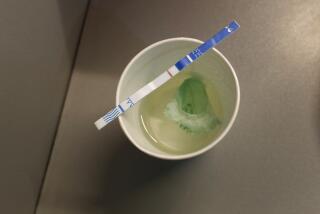Countywide : OCTA to Begin Random Drug, Alcohol Testing to Meet Federal Law
- Share via
The Orange County Transportation Authority will soon begin randomly testing more than 1,000 employees for drug and alcohol use in a new program designed to meet federal mandates, officials said Monday.
Drug testing is not new at the agency, said Marlene Heyser, OCTA’s human resources director. Over the past 10 years, employees and supervisors who work in “safety sensitive” positions have faced drug and alcohol tests--when first applying for jobs or later when seeking recertification or when they come under suspicion of drug use, she said.
But the OCTA has decided to spend $12,000 of a $75,000 drug-testing budget to implement a new random-testing program.
Once the program is in place, the agency will be in compliance with the federal Omnibus Transportation Employee Testing Act of 1991 and rules mandated by the U.S. Department of Transportation and Federal Transit Administration, Heyser said.
Those regulations require the agency to test at least 50% of employees who could prove a danger if their senses are impaired, a staff report to the agency’s Board of Directors said.
Employees subject to the testing include crew members on vehicles, dispatchers, repair and maintenance workers, and those who carry a firearm or provide security, the staff report said.
Human resources workers have been fine-tuning a computer program for the past several months that will determine which employee is tapped for the test on any given day.
“Essentially, it’s like you would put a name in a hat,” Heyser said. “Then, those names are put in the hat again so (the employee) can be picked again.” Technically, the same employee could be picked for a test within days, she added.
Very few people will have access to the computer, and the times of the testing will vary from day to day, Heyser explained. “This is not something that will be done far in advance,” she said.
Supervisors will notify employees if their names are picked and give them a ride to a nearby clinic. There, clinic workers will test urine samples for use of amphetamines, marijuana, cocaine, opiates or PCP. The employees will also have to take a Breathalyzer test for alcohol.
If they flunk, they will face immediate suspension and an eventual discharge hearing, Heyser said.
More to Read
Sign up for Essential California
The most important California stories and recommendations in your inbox every morning.
You may occasionally receive promotional content from the Los Angeles Times.













